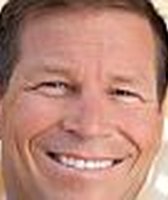Get PolitiFact in your inbox.
Connie Mack says Bill Nelson voted for higher taxes 272 times
U.S. Rep. Connie Mack IV, R-Fort Myers, has repeatedly said that his Senate opponent, Democrat Bill Nelson, voted to raise taxes 150 times.
In the home stretch, Mack has now upped the ante in an Oct. 26 fundraising email. The subject line: "We were Wrong."
"For months you've heard us say that Bill Nelson has voted in favor of higher taxes over 150 times. As it turns out, we were wrong," the email says. " I hope you'll forgive our mistake. In fact, it turns out Bill Nelson actually voted in favor of higher taxes 272 times. That's right -- Bill Nelson didn't vote for higher taxes over 150 times. He did it 272 times."
Mack’s fundraising plea explains that its initial claim included about 157 votes Nelson cast in the Senate starting in 2001. Now the Mack campaign has gone back decades to cite votes that Nelson took while in the Florida House of Representatives (1973-78) and in the U.S. House of Representatives (1979-90).
In this fact-check we will explore if Nelson voted for higher taxes 272 times. The Mack campaign sent us a memo showing their list of about 150 tax votes in the Senate, and they also show Nelson’s older votes on their website. We specifically examined the votes that the Mack campaign identified as the most significant while Nelson was in the U.S. House.
Budget resolutions
In August, we fact-checked Mack’s claim that Nelson "voted to raise our taxes 150 times" and ruled that claim False. We will recap our research from that item and update our analysis, including addressing new arguments made to us by the Mack campaign. (Read our original fact-check.)
About half of the votes on that earlier 150-vote list were Democratic budget resolutions, which set non-binding parameters for considering tax and spending legislation. So it's technically incorrect to say the budget resolution will raise, lower or even keep taxes the same. The documents cannot change tax law.
Mack researcher Gary Maloney said that these resolutions should count as Nelson votes for higher taxes because they are instructions to committees about what bills to pass concerning spending and taxes. He pointed to a Congressional Research Service article that explains that a budget resolution is an agreement between the House and Senate about the federal budget, and that legislation must be consistent with resolutions.
"After Congress works a change in taxes or spending into a budget resolution, the next step is
to pass bills that conform tax and spending laws to enforce the budget," he said. "Each budget assumes set amounts of spending and revenue in a given year."
We sent Steve Ellis, vice president of Taxpayers for Common Sense, a copy of our earlier fact-check and our disputes with Mack whether to count budget resolutions as votes for higher taxes. Ellis told us that the budget resolution issue is tricky.
"It is relatively non-binding as you indicate," Ellis said in an email. "Especially if there is no final concurrent budget resolution. The only time it becomes binding is if they do budget reconciliation, which is how the 2001 and 2003 tax cuts got through the Senate. That forces the committee’s hands."
Duplicative counting
Mack’s tally counts multiple votes on the same budget resolution. For example, Mack cites nine votes Nelson took in 2008 about Congressional Resolution 70, a five-year budget plan.
Mack also counted multiple votes on actual legislation. It’s common for senators to take multiple votes as both parties engage in maneuvering and introduce competing amendments.
For example, in 2001 Mack counts 15 of Nelson’s votes on H.R. 1836 -- the $1.35 trillion in tax cuts enacted under President George W. Bush. In our view, that counts as one example of Nelson opposing tax cuts -- not 15 examples.
The Mack campaign argues that duplicative votes should count because there can be differences in various versions of the same bill, and Nelson could have chosen to change his vote along the way. Maloney said that Mack’s claim was about the number of "votes" -- not about the number of "bills."
We also asked Ellis to weigh in on Mack’s argument about duplicative votes.
"Counting multiple votes on the same legislation and all of its permutations just serves to pad the number, but in some cases isn’t completely inaccurate, just not telling the full tale," Ellis said.
Defining "higher taxes"
Which brings us to another point: Is opposing a tax cut the same as "voting to raise our taxes?" as Mack initially said, or, as he says now, "higher taxes"?
This note by the Mack campaign about Nelson’s U.S. Senate votes explains how the campaign defined higher taxes: "The votes in this tally are votes against tax cuts as well as votes to raise taxes, votes in favor of reducing proposed tax cuts, votes for non-binding resolutions supporting taxes, votes to eliminate particular tax cut provisions while retaining others, etc. Because of this, the language must be votes ‘in favor of higher taxes’ to be accurate. Be aware that in certain instances in the votes below, a majority of Republicans voted the way Nelson did. Please also be aware that these votes cannot be characterized in a way that implies that each one would have resulted in a tax increase; this would be inaccurate."
Nelson campaign spokesman Dan McLaughlin, who said that Mack used "twisted math," pointed to the last sentence in that note that said that the votes can’t be characterized as a tax increase.
Mack’s original list counted several examples of Nelson opposing tax cuts. Some are minor, such as Nelson’s vote to table an amendment to get rid of the medical device tax in 2010.
Earlier this year, we sent Mack’s list to a number of experts, including Joshua Gordon, policy director of the Concord Coalition, a group that urges deficit reduction.
Gordon called Mack’s list "ludicrous."
"Voting to lessen the size of a tax cut in a budget resolution is not voting for a tax increase," he said. "So, I would argue the methodology represents a crazy way to look at this issue."
The Mack campaign now argues that a vote against a tax cut is a vote on the side of "higher taxes." For the 272-vote claim, the Mack campaign includes a Nelson vote in the Florida House that maintained the gas tax in 1977. So that legislation kept the status quo -- and the Mack campaign argues that is a vote for "higher taxes" because if he had wanted to get rid of the tax that would be "lower taxes."
Again, we turned to Ellis:
"That’s fairly clever," Ellis wrote. "Although I guess you could argue that any vote to not cut taxes is a vote for higher taxes, or to not cut them further – regardless of whether it’s a tax vote or not. It’s kind of a slippery slope. So it would be more accurate to say maintain taxes rather than for higher taxes which leaves the listener/reader with an impression that isn’t accurate.
Mack’s statement also omits that Nelson has sometimes voted in favor of tax cuts. In 2006 and in 2010, for example, Nelson supported extending tax cuts.
This year, he went along with Obama’s plan and voted in July to keep tax cuts only for those earning less than $250,000, though he had said he would have preferred keeping the Bush-era tax cuts for those earning up to $1 million.
Mack’s new claim includes Nelson’s votes in the Florida House and the U.S. House of Representatives
To get to its new number of 272, the Mack campaign now includes Nelson’s votes from 1973 to 1978 in the Florida state House.
That list also includes some duplication: for example, there are two votes listed on the same cigarette tax bill in 1973.
Some tax votes only applied to a portion of the state’s taxpayers -- for example, one related to a taxing district in the city of Boca Raton.
Many of the votes were about fees, and some were obscure or only applied to a slice of residents: registration fees for barbers’ assistants, a fee for golf courses to set up temporary bars, and prestige tags for motorcyclists.
Other fees had a bigger effect, such as a 1975 measure which was expected to raise $500,000 in driver’s license fees.
The Mack campaign also searched the federal congressional record to obtain information on Nelson’s votes as a congressman and lists about 89 as votes for higher taxes.
Nelson spokesman Dan McLaughlin noted that about 18 of the U.S. House votes cited by Mack were non-binding resolutions. Also, the Mack campaign includes about 38 duplicative votes, in cases when Nelson took between two and six votes on the same bill.
The Mack campaign cited several key House votes of Nelson in favor of higher taxes. These included the Tax Equity and Fiscal Responsibility Act of 1982, the Deficit Reduction Act of 1984 and a significant tax increase in 1990. We confirmed that Nelson did vote in favor of these taxes. An interesting historical note, however, is that Republican presidents Ronald Reagan and George H.W. Bush signed them into law.
Our ruling
Mack said that "Bill Nelson actually voted in favor of higher taxes 272 times."
After PolitiFact gave Mack a "False" rating for saying that Nelson voted to raise taxes 150 times the Mack campaign has tweaked their message to say Nelson voted in favor of "higher taxes." Mack argues that "higher" taxes aren’t necessarily the same as a tax "increase" -- a vote for the status quo or against a tax cut is choosing a path of "higher" taxes, Mack argues.
We find that Mack’s new wording could still leave voters with a false impression.
Nelson did take some votes that raised taxes. But Mack grossly inflates the number by counting multiple votes on the same bill, non-binding resolutions and some fees that only affected a slice of the population.
We rate this claim False.
Featured Fact-check
Our Sources
PolitiFact, "Connie Mack said Bill Nelson voted to raise taxes 150 times," Aug. 20, 2012
Connie Mack campaign, Memo about Bill Nelson’s U.S. Senate tax votesand note, 2012
Connie Mack campaign, Portions of Florida Legislative summaries, 1976-77
Connie Mack campaign, Fundraising email,Oct. 26, 2012
Connie Mack campaign website, "Mack campaign admits mistaking when counting Nelson’s higher tax votes ... the real number isn’t 150 times, it's 272 times...," Oct. 26, 2012
Connie Mack campaign, Spreadsheets of Bill Nelson’s votes in the state house 1973-1978 and U.S. House 1979-1990
Congressional Research Service, Congressional Budget process, March 3, 2011
Florida Office of Economic and Demographic Research, Fiscal Analysis in Brief, 1973-1978
U.S. Library of Congress, H.R. 3919, Adoption of the conference report March 13, 1980
U.S. Library of Congress, H.R. 4961, House agreed to conference report Aug. 19, 1982
U.S. Library of Congress, H.R. 6211, House vote Dec. 6, 1982
U.S. Library of Congress, H.R. 4170, House vote April 11, 1984
U.S. Library of Congress, H.R. 5835, House vote Oct. 16, 1990
CQ website (subscription required), H.R. 4170, House vote April 11, 1984
CQ website (subscription required) H.R. 2470, House vote June 2, 1988
CQ website (subscription required), H.R. 5835, Adoption of the Conference Report Oct. 26, 1990
U.S. Senate, Amendment 3579 to H.R. 4872, March 24, 2010
U.S. Senate, Senate amendment 4218 to Congressional Resolution 70, March 13, 2008
U.S. Senate, Senate amendment 4160 to Congressional Resolution 70, March 13, 2008
U.S. Senate, Senate amendment 3537 to H.R. 4872, March 24, 2010
U.S. Senate, H.R. 2, May 23, 2003
U.S. Senate, H.R. 4297, May 11, 2006
U.S. Senate, Senate Amendment 3054 to S. Con. Res. 83, March 15, 2006
U.S. Senate, Senate amendment 4318 to H.R. 4213, June 15, 2010
The Library of Congress, Senate amendment 2619, Aug. 2, 2007
New York Times Inside Congress, Senate Vote 276 Passes Obama’s Tax Plan, Dec. 15, 2010
New York Times, Roll Call in the House, Aug. 20, 1982
New York Times, Brief about a compromise on windfall profits tax, Accessed in Nexis, March 14, 1980
Washington Post, "House passes bill to increase taxes by $49.2 billion," Accessed in Nexis, April 12, 1984
Associated Press, Roll call on tax bill, April 11 1984
Chemical week, "U.S. may be due a windfall on windfall profits tax," Accessed in Nexis, Aug. 10, 1983
Miami Herald, "Indian River Beach work proceeding," Accessed in Nexis, April 29, 1984
Miami Herald, "Stock dive forced action on deficit, Nelson says," Accessed in Nexis, Nov. 22, 1987
Miami Herald, "House OKs Medicare reform; here’s what it covers," Accessed in Nexis, June 3, 1988
Miami Herald, "Florida delegation torn between loyalities," Accessed in Nexis, Oct. 6, 1990
Interview, Gary Maloney, researcher for U.S. Rep. Connie Mack IV’s Senate campaign, Oct. 29, 2012
Interview, Dan McLaughlin, spokesman for U.S. Sen. Bill Nelson’s campaign, Oct. 29, 2012
Interview, Steve Ellis, vice president of Taxpayers for Common Sense, Oct. 31, 2012
Browse the Truth-O-Meter
More by Amy Sherman
Connie Mack says Bill Nelson voted for higher taxes 272 times
Support independent fact-checking.
Become a member!
In a world of wild talk and fake news, help us stand up for the facts.








































